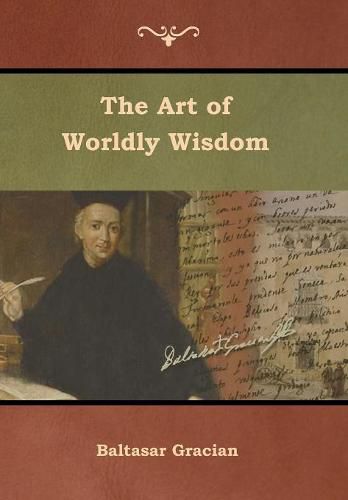Readings Newsletter
Become a Readings Member to make your shopping experience even easier.
Sign in or sign up for free!
You’re not far away from qualifying for FREE standard shipping within Australia
You’ve qualified for FREE standard shipping within Australia
The cart is loading…






This title is printed to order. This book may have been self-published. If so, we cannot guarantee the quality of the content. In the main most books will have gone through the editing process however some may not. We therefore suggest that you be aware of this before ordering this book. If in doubt check either the author or publisher’s details as we are unable to accept any returns unless they are faulty. Please contact us if you have any questions.
Baltasar Gracian, in full Baltasar Gracian y Morales, (born January 8, 1601, Belmonte de Calatayud, Spain–died December 6, 1658, Tarazona), philosopher and writer known as the leading Spanish exponent of conceptism (conceptismo), a style of dealing with ideas that involves the use of terse and subtle displays of exaggerated wit.
After studying at Calatayud and Zaragoza, Gracian entered the Jesuit order at the age of 18 and later became rector of the Jesuit college at Tarragona. His early works–El heroe (1637; The Hero), El discreto (1646; The Compleat Gentleman), and El oraculo manual y arte de prudencia (1647; The Art of Worldly Wisdom: A Pocket Oracle)–were largely efforts to educate people in the ethics of worldly life. His literary ideas on conceptism and the art of conceited writing (writing that continually shocks the reader by the use of startling metaphor) were clearly set forth in Agudeza y arte de ingenio (1642, 2nd ed. 1648; Subtlety and the Art of Genius ). In defiance of his superiors, he published pseudonymously El criticon (1651, 1653, 1657; The Critick), a three-part philosophical novel considered by the 19th-century German pessimistic philosopher Arthur Schopenhauer one of the most important books ever written. In it he examined society from the standpoint of a savage and gave the clearest statement of his pessimistic philosophy with its emphasis on willpower and struggle. (britannica.com)
$9.00 standard shipping within Australia
FREE standard shipping within Australia for orders over $100.00
Express & International shipping calculated at checkout
This title is printed to order. This book may have been self-published. If so, we cannot guarantee the quality of the content. In the main most books will have gone through the editing process however some may not. We therefore suggest that you be aware of this before ordering this book. If in doubt check either the author or publisher’s details as we are unable to accept any returns unless they are faulty. Please contact us if you have any questions.
Baltasar Gracian, in full Baltasar Gracian y Morales, (born January 8, 1601, Belmonte de Calatayud, Spain–died December 6, 1658, Tarazona), philosopher and writer known as the leading Spanish exponent of conceptism (conceptismo), a style of dealing with ideas that involves the use of terse and subtle displays of exaggerated wit.
After studying at Calatayud and Zaragoza, Gracian entered the Jesuit order at the age of 18 and later became rector of the Jesuit college at Tarragona. His early works–El heroe (1637; The Hero), El discreto (1646; The Compleat Gentleman), and El oraculo manual y arte de prudencia (1647; The Art of Worldly Wisdom: A Pocket Oracle)–were largely efforts to educate people in the ethics of worldly life. His literary ideas on conceptism and the art of conceited writing (writing that continually shocks the reader by the use of startling metaphor) were clearly set forth in Agudeza y arte de ingenio (1642, 2nd ed. 1648; Subtlety and the Art of Genius ). In defiance of his superiors, he published pseudonymously El criticon (1651, 1653, 1657; The Critick), a three-part philosophical novel considered by the 19th-century German pessimistic philosopher Arthur Schopenhauer one of the most important books ever written. In it he examined society from the standpoint of a savage and gave the clearest statement of his pessimistic philosophy with its emphasis on willpower and struggle. (britannica.com)